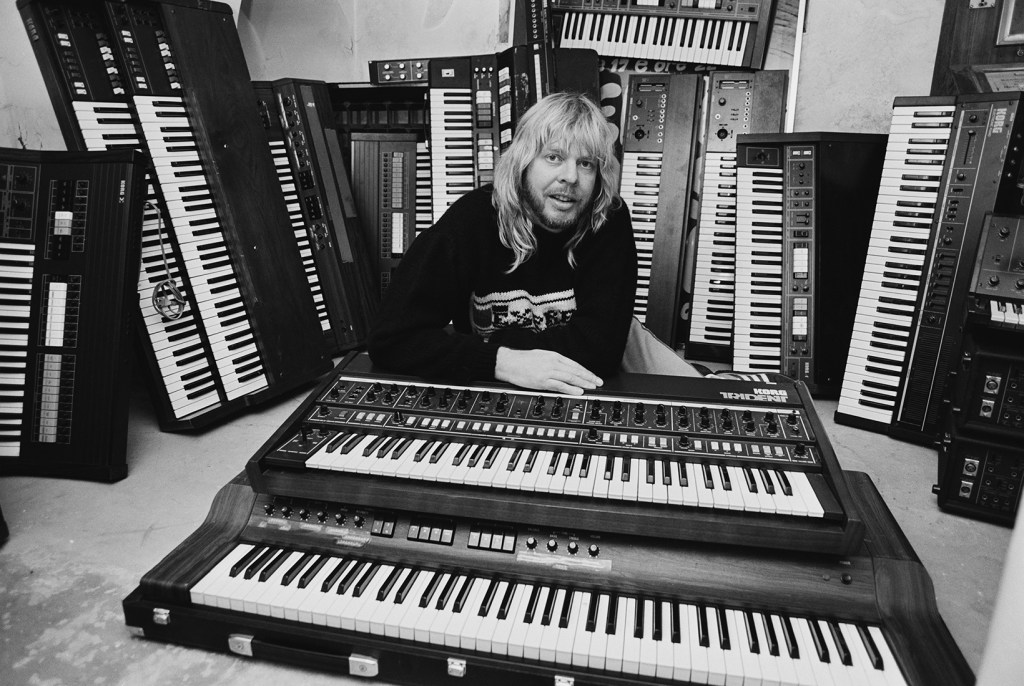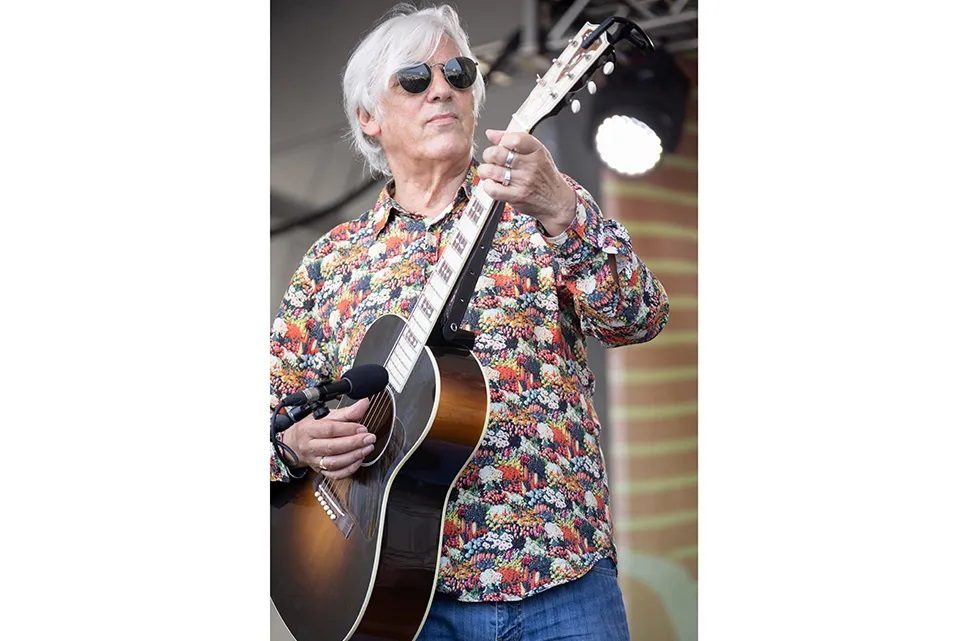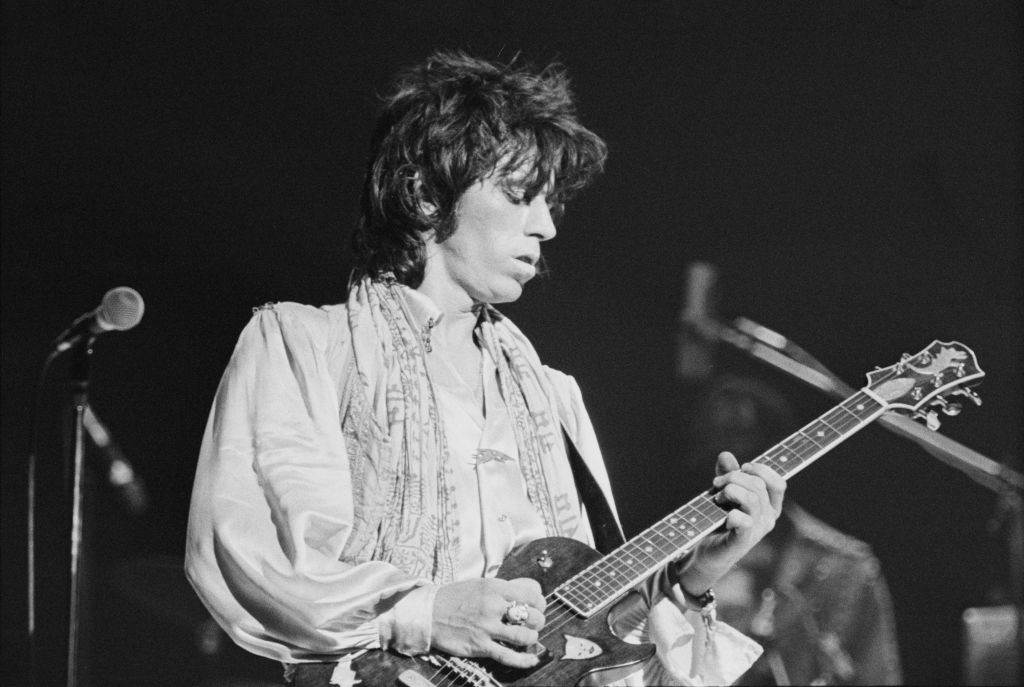‘Classic rock’ is a term applied to the sort of chest-beating rawk that people of my generation admire: the Who, Bad Company, Blue Oyster Cult insisting, in timely fashion, that we should embrace death, and Lynyrd Skynyrd informing us, with unforeseen irony, that they can fly, free as a bird.
The classic keyboard player Rick Wakeman, once of the classic rock band Yes, has curated a triple album of classic rock from that most magical (for me) of decades, the 1970s. It’s called 70s Rock Down and is released in CD format on the new label Xploded TV. Why on CD, given that so much music today is simply digitally downloaded? Because Rick and the team are well aware that Dad, or Granddad, is sick to the back teeth of having to ask the kids how to download stuff. We are the generation that likes something solid in its paws. So, 60 tracks designed to ease this vulnerable section of the population through Britain’s COVID lockdowns; hence the title. All of those aforementioned bands are included, along with Deep Purple and Status Quo and — well, we’ll come to the rest in a minute. But one genre is wholly absent, as I point out to Rick during an early morning phone call.
‘Where’s the punk, Wakeman? Did 1977 not happen in your universe?’ There’s a weary growl down the phone. ‘I get pilloried for hating punk, whereas nothing could be further from the truth. I was the guy who got the Tubes [Los Angeles kind-of punks] signed.’
It is true Rick was not, in 1977, the most fashionable kid on the block. Partly it was the sweeping blond mane stretching down almost to his coccyx, partly his membership in hippy prog warblers Yes, and also his own solo career, which consisted of making very pretty piano and synthesizer pieces about King Henry VIII’s wives. Hardly ‘White Riot’, is it? And then there was his infamous involvement in the sacking of the Sex Pistols.
Rick takes up the story. Johnny Rotten, Sid Vicious and co. had been signed by Rick’s label, A&M, in March 1977. ‘I was at A&M when they were signed by the British branch. The American head office thought they didn’t fit with the label’s image and told London to get rid of them. But they also wanted to exonerate the London office. So they came up with the idea of getting me and Richard Carpenter to say: if they stay, we go. It was a total fabrication.’ They chose Rick because a) he fitted the bill and b) he lived miles from anywhere in Switzerland and wouldn’t find out about it all. But he did find out about it and went berserk. He ended up leaving the label because of the misrepresentation, not because he disliked being on the same label as the fragrant Mr Vicious. Shortly afterwards, the Pistols were sacked from A&M.
But back to the album. Wakeman concedes that maybe ‘London Calling’, by the Clash, or something by the Jam could have been included. But still, not much that came out of punk has endured, if we’re honest. The selections were made by Wakeman in conjunction with two music industry geezers, and he reckons that a good 10 of the songs he wouldn’t have chosen himself: that’s the problem with democracy. It is magnanimous of him to have allowed Bachman-Turner Overdrive’s crunchy anthem to stammering, ‘You Ain’t Seen Nothing Yet’. It is taken from their album Not Fragile, which was itself a riposte to Yes’s rather winsome album Fragile — a lumberjack’s retort to epicene limey prog.
The 60 tracks major on hard rock with surprisingly few forays into that dismal blind alley heavy metal, and rather less prog than one might have expected from its arch exponent, although Yes’s surprise 1977 hit, ‘Wonderous Stories’, is there and Emerson, Lake and Palmer make an unwanted appearance. But then, the fun of such a compilation comes as much in disparaging the stuff one hates — such as Foreigner’s hideous ‘Cold As Ice’ (imaginative metaphor, gentlemen) and Geordie one-hit wonder John Miles’s ‘Music’, with its crushingly banal opening lines: ‘Music was my first love/ and it will be my last, / Music of the future/ and music of the past.’ Oh DO go on. (And he does, for six bloody minutes.) But it is pleasing they’ve found room for Jo Jo Gunne’s ‘Run, Run, Run’ — hardly a song at all, just a joyful cacophony of slide guitar full of spirit, literally and metaphorically. And indeed the Knack’s dimbo teen powerpop, ‘My Sharona’. I would have liked a bit of Captain Beefheart, Neil Young and maybe the New Riders of the Purple Sage, but I don’t think any of those really fit the template. I don’t think the good Captain’s ‘Dachau Blues’ would necessarily lift the lockdown gloom, still less the shrieks of ‘Bat Chain Puller’.
Wakeman had intended to launch the album with a live concert at the London Palladium, but that’s not going to happen. Rick is not a big admirer of lockdown. ‘People choose the advice that suits them, including the politicians. This [lockdown] has killed everyone in the music business. There’s nobody to help them. It is always the musicians who step forward when money needs to be raised for charity. But now it’s the musicians losing their livelihoods, there’s nobody there. So many musicians in dire straits, so many. The politicians need to understand that the world needs music, the world needs the arts. I know the damage this has caused. But I’m not giving up.’
I once went to see Yes, when I was 13, at Newcastle City Hall. Rick wasn’t there. He’d left the band as a consequence of its unfathomably awful album, Tales From Topographic Oceans. Rick always liked a good tune and this double album didn’t have any. The band came out of pods on stage, just like in Spinal Tap, and I was bored into stupefaction. ‘We were all on different planets back then,’ he laughs, ‘and we didn’t even know what planets they were.’ He rejoined them a few years later once they’d got that topographic nonsense out of their systems. A huge talent, Wakeman, an engaging interviewee and a refugee from that rather wonderful decade of power cuts, glam rock and terrorism, the 1970s.
Rick Wakeman’s triple album, 70s Rock Down, is out now on Xploded TV. This article was originally published in The Spectator’s March 2021 US edition.

























